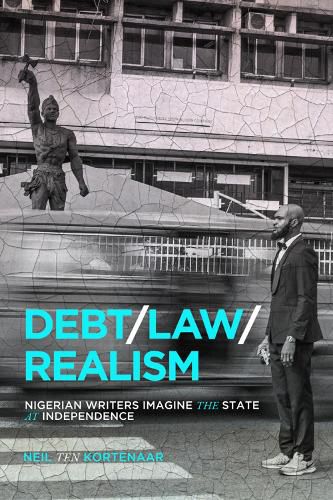Debt, Law, Realism: Nigerian Writers Imagine the State at Independence
Neil ten Kortenaar

Debt, Law, Realism: Nigerian Writers Imagine the State at Independence
Neil ten Kortenaar
In the decade before and after independence, Nigerians not only adopted the novel but reinvented the genre. Nigerian novels imagined the new state, with its ideals of the rule of law, state sovereignty, and a centralized administration.
Debt, Law, Realism argues that Nigerian novels were not written for a Western audience, as often stated, but to teach fellow citizens how to envision the state. The first Nigerian novels were overwhelmingly realist because realism was a way to convey the understanding shared by all subject to the rule of law. Debt was an important theme used to illustrate the social trust needed to live with strangers. But the novelists felt an ambivalence towards the state, which had been imposed by colonial military might. Even as they embraced the ideal of the rule of law, they kept alive a memory of other ways of governing themselves. Many of the first novelists - including Chinua Achebe - were Igbos, a people who had been historically stateless, and for whom justice had been a matter of interpersonal relations, consensus, and reciprocity, rather than a citizen’s subordination to a higher authority.
Debt, Law, Realism reads African novels as political philosophy, offering important lessons about the foundations of social trust, the principle of succession, and the nature of sovereignty, authority, and law.
This item is not currently in-stock. It can be ordered online and is expected to ship in approx 4 weeks
Our stock data is updated periodically, and availability may change throughout the day for in-demand items. Please call the relevant shop for the most current stock information. Prices are subject to change without notice.
Sign in or become a Readings Member to add this title to a wishlist.


